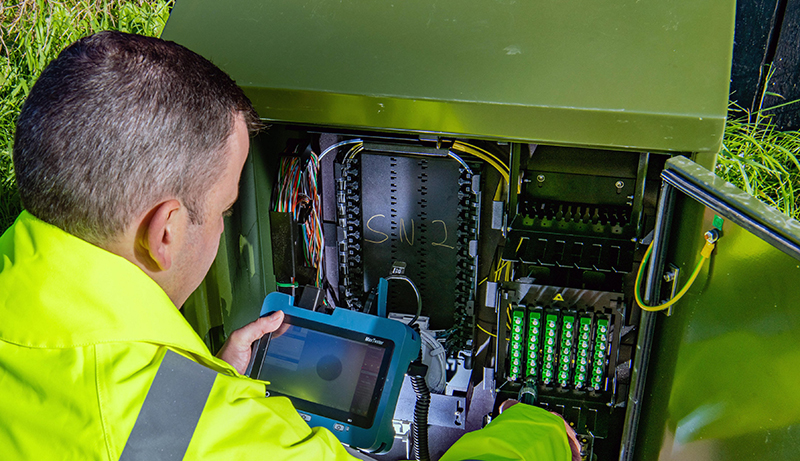Bridging the skills gap
December 16th, 2025

The telecommunications sector is facing a labour shortage and a technical skills gap. The situation can only worsen over time as it is estimated that over 60% of the telecoms engineering work force in the UK are past the age of 50. Apart from the inevitable shrinkage in the workforce, remaining staff may not have kept up to date with the radical technological changes that have affected the industry in this century.
These challenges are exacerbated by the pressure to expand the coverage and capabilities of fibre broadband access due to customer expectations, increasing competition, and government targets.
The solution comes in two parts: re-skilling the existing workforce and recruiting and training young people.
Apprenticeships provide a structured, all-encompassing method of inducting new staff. Governments in the EU and UK actively encourage apprenticeships with financial inducements and other support especially for small and medium enterprises (SMEs).
The UK’s Telecoms Field Operative apprenticeship scheme is designed for those who will build and maintain fixed line broadband access networks. PTT has developed a range of online courses that cover the knowledge objectives of that apprenticeship standard. This unique resource provides training delivery flexibility and reduced costs that benefit employers and training providers while ensuring teaching is of a consistent high quality.
The latest PTT online course “Working in access networks” joins those PTT courses already providing targeted, relevant training for field operatives.
Comments Off on Bridging the skills gap
5G’s march to the future
November 27th, 2025
 .
.
The UK mobile operator EE has announced that its 5G standalone (5G SA) service now reaches two thirds of the UK’s population. 5G SA provides lower latency and higher speeds than conventional (non standalone) 5G since it isn’t partly reliant on existing 4G infrastructure.
With a feature referred to as network slicing, 5G SA also offers differentiated services where a service can be tailored to the specific requirements of an industrial application or group of users.
For example, Vodafone recently carried out a trial of network slicing to provide mobile coverage at a Wales versus Ireland rugby match. One “slice” provided a service suitable for video sharing and other data heavy activities for those in a hospitality area while another gave guaranteed upload speeds for official photographers that were unaffected by more general mobile activity in the area.
Industrial applications that require ultra-low latency and high security may prove to be the biggest beneficiaries of 5G SA with network slicing. These include those that employ robotics, autonomous guided vehicles, and a high density of networked smart devices such as cameras, sensors, and actuators that remotely monitor and control industrial processes.
You can keep abreast of mobile technology development by studying PTT online courses including “4G and 5G radio access networks” and “Advanced mobile systems“
Comments Off on 5G’s march to the future
Shining a light on optical links
July 31st, 2025

The need for more international communications capacity driven in part by the growth in access to cloud services including those using artificial intelligence has led to the continued expansion of the mesh of submarine cables that encircle the world.
For example, the new Medusa subsea cable will thread through the Mediterranean connecting Lisbon with countries such as Spain, Morocco, Tunisia, Malta, Libya, Algeria, and Egypt. The cable will contain 24 optical fibre pairs each carrying 20 Terabits per second for a total system capacity of 480 Terabits per second.
Google, meanwhile, has announced its intention to deliver another high capacity transatlantic cable linking the USA with Bermuda, the Azores, and Spain.
PTT’s new online course “Optical line systems” explains the principles of the technologies that enable these high capacity, low latency connections. The course also gives up-to-date information about the capabilities, components and operation of the optical links that provide interconnections for telecommunications and cloud service providers over land as well under the sea.
Comments Off on Shining a light on optical links

 .
.